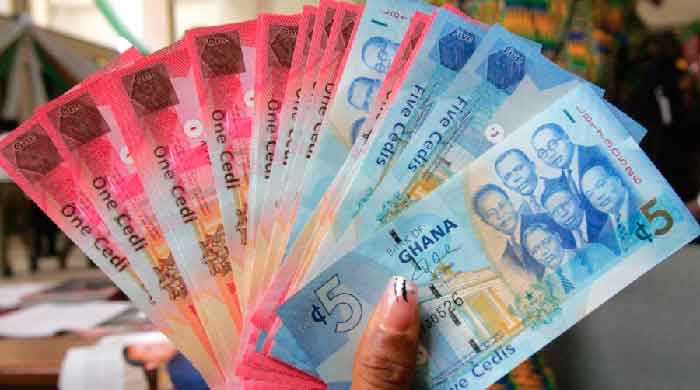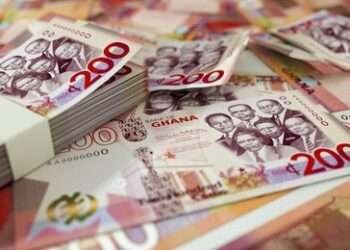The Ghanaian cedi, having demonstrated commendable stability throughout the majority of the year, is bracing for a marginal depreciation against the US dollar in the upcoming festive season, as indicated by insights from the Ghana Association of Forex Bureaux.
While Fitch Solutions projects the cedi concluding 2023 at 11.40 to the dollar, industry experts highlight a surge in dollar demand and heightened imports as potential catalysts for this anticipated depreciation.
According to a representative from the Ghana Association of Forex Bureaux, the festive season typically sees an increased demand for foreign currencies, especially the US dollar, given the dollar-denominated nature of a substantial portion of Ghana’s imports.
Consequently, a modest depreciation in the cedi’s value against the dollar is expected during this period. Despite acknowledging the projected depreciation, the representative emphasized that any devaluation would be relatively modest.
Dr. Alex Akpabli, a notable figure in the forex community, stressed the need for regulatory measures on imports to alleviate pressures on the local currency. “Addressing the challenge of high importation is paramount. The Ghana cedi has showcased resilience, and strategic interventions can further enhance its performance,” remarked Dr. Akpabli.
Looking ahead, Fitch Solutions presents a contrasting outlook, forecasting a 1.0% strengthening of the cedi against the US dollar in 2024.
The UK-based firm suggests that progress in the restructuring of Ghana’s external debt under the G20 Common Framework, expected by the second quarter of 2024, will be a pivotal driver.
Successful Debt Restructuring Anticipated to Boost Investor Confidence
Successful debt restructuring is anticipated to boost investor confidence, attract capital inflows, and fortify the cedi’s position.
As Ghana navigates these economic currents, the delicate equilibrium between import dynamics, regulatory measures, and debt restructuring will play a decisive role in determining the fate of the cedi in the coming months.
Dr. Akpabli’s call for regulatory measures aligns with the broader challenge of finding a balance between sustaining economic growth through imports and safeguarding the cedi’s stability.
The festive season, known for increased consumer spending and heightened economic activities, puts additional pressure on the cedi. The demand for foreign currencies, especially the US dollar, rises as consumers indulge in imported goods and services. This seasonal pattern necessitates a proactive approach from regulatory bodies to manage the potential impact on the currency.
In light of Fitch Solutions’ optimistic projection for 2024, it becomes evident that external factors, such as debt restructuring, will play a pivotal role in shaping the cedi’s future.
The successful implementation of the G20 Common Framework could not only strengthen the cedi but also position Ghana favorably for increased foreign investments. This, in turn, could have a cascading effect on the country’s economic stability and currency valuation.
The delicate dance between import dynamics and regulatory interventions underscores the need for a nuanced and comprehensive strategy. Striking a balance between facilitating imports, which contribute to economic growth, and implementing measures to protect the cedi is a multifaceted challenge.
As Ghana moves forward, policymakers and stakeholders must collaborate to find sustainable solutions that foster economic growth without compromising currency stability.
Currently, the cedi has exceeded the projected outlook and trading at GHS12 per the dollar and it’s being sold at GHS12.25 per the dollar.
The cedi’s outlook for the festive season hinges on a careful interplay of factors, including import-driven demand, regulatory measures, and external debt restructuring.
While challenges loom, strategic interventions and a forward-looking approach could position Ghana for a resilient economic performance, enhancing the cedi’s stability in the face of seasonal fluctuations and global economic dynamics.
READ ALSO: I’m In Charge Of My Father’s Donation – Mr. Ibu’s Son





















